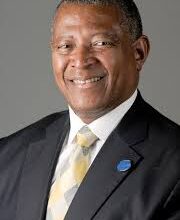Interlock ignition locks now required
Published 10:29 pm Thursday, April 3, 2014
Alabama passed an all-offender ignition interlock legislation, and the leader of the Selma Police Department supports it.
Alabama has passed House Bill 381, legislation that requires all ignition interlock for all convicted drunk drivers and first time offenders with an illegal blood alcohol concentration of .08 or higher who seek to drive during a license suspension.
“We always need to look at things that are going to protect the public,” Selma Chief of Police William Riley said.
Ignition interlock is a device wired into an ignition system of a vehicle, according to
Mothers against Drunk Driving, a national non-profit organization dedicated to stop drunk driving who supports the bill. Drivers must blow into the device to start the vehicle, which will not start if the driver’s blood alcohol content is more than the legal limit.
Riley said drunk driving is a serious issue in the Selma the Selma Police Department is dedicated to monitoring.
“We recognize that they can not only kill the public and hurt the public, but they can do the same to us when we are out there,” Riley said. “It’s justly something that we are concerned about.”
A previous state bill did require the device, but stated that it only applied to those convicted of drunk driving.
Although some may not agree with the decision to further strengthen the consequences for drunk driving, Riley said the legislation is going on the side of precaution.
“They want to make sure that with this law we are not going to take the chance of anyone now drinking and driving before they are finally jubilated in court,” Riley said.
Ignition interlocks, on average, reduce drunken driving recidivism by 67 percent compared to license suspension alone, according to the Centers for Disease Control and Prevention.
“Today is an important day for Alabama,” MADD National President Jan Withers wrote in a press release. “We are one step closer to ending the toll of drunk drivers on Alabama’s roads.”




